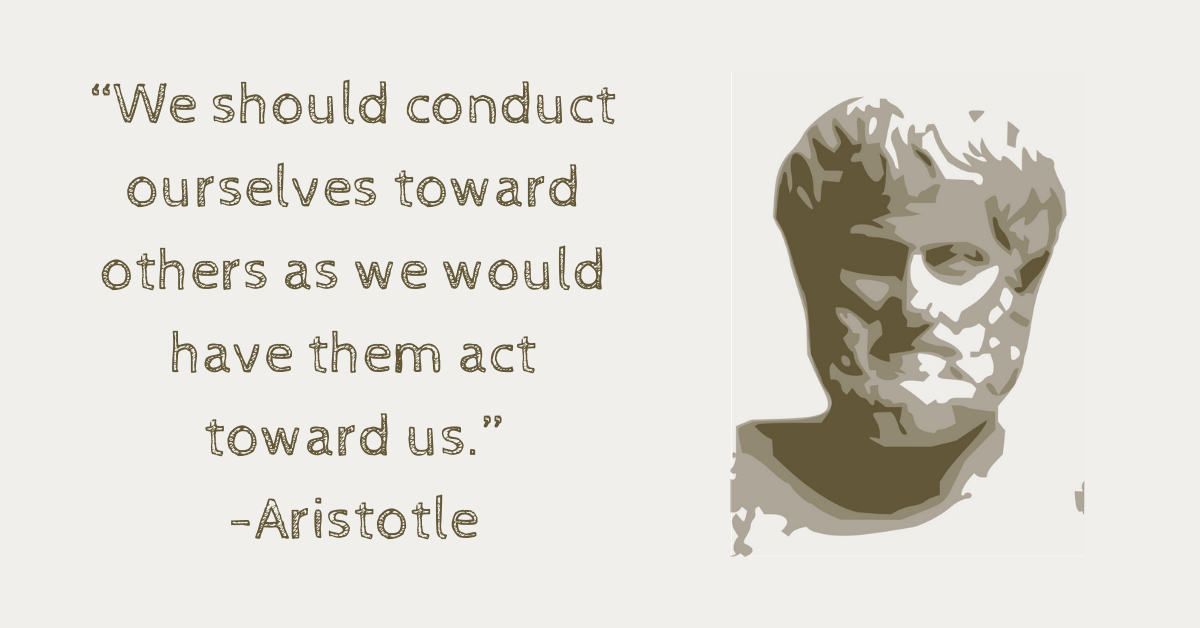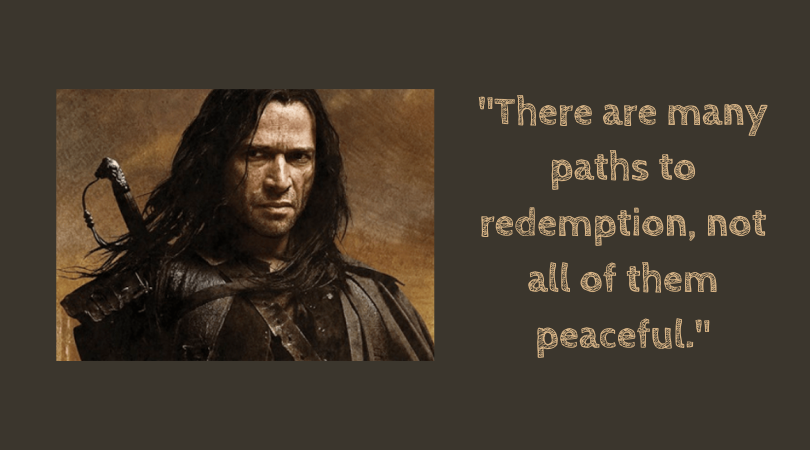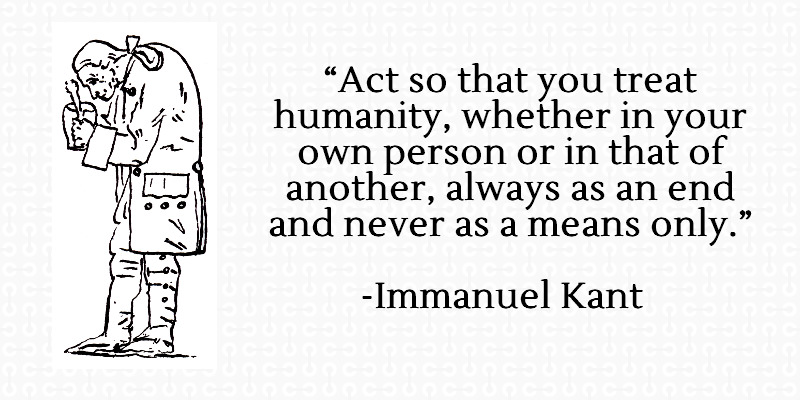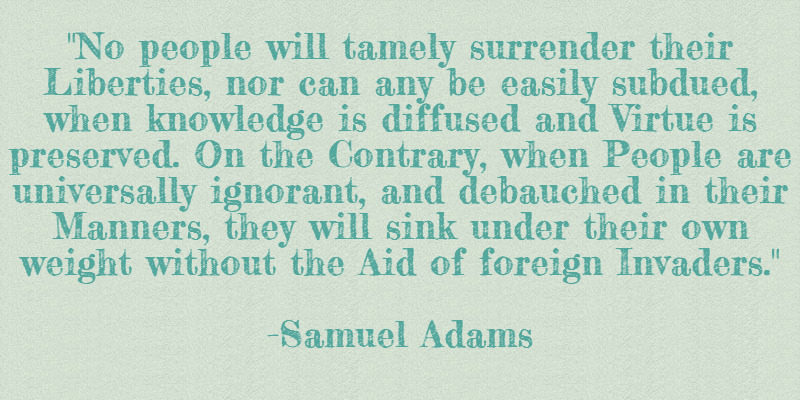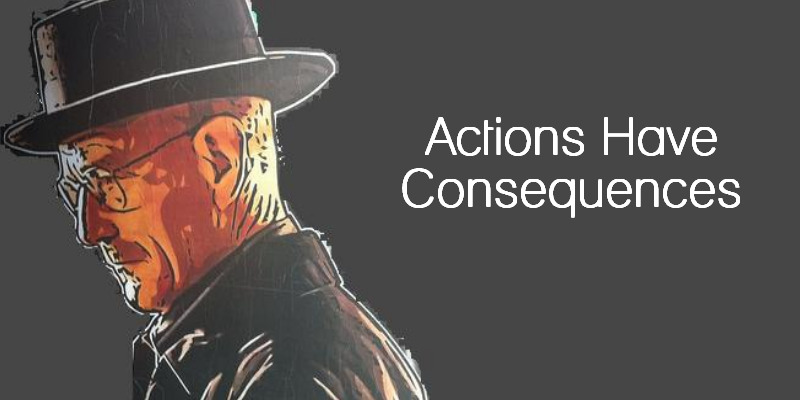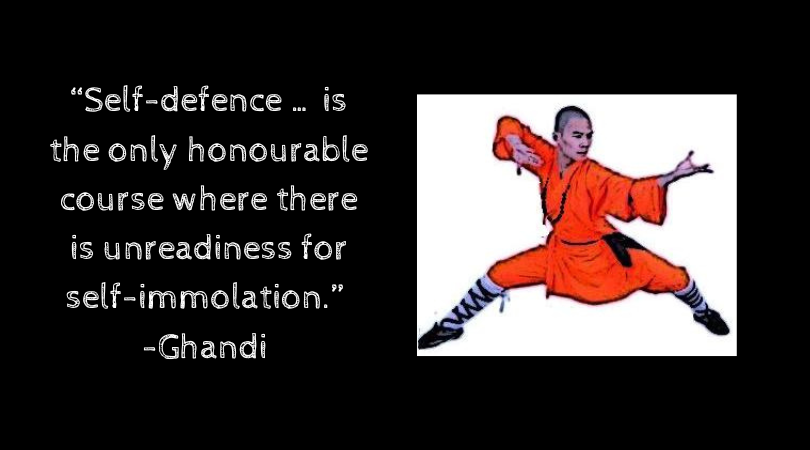It turns out that there are 3 important rules we can always use to do right by others: the Silver Rule, the Golden Rule and the Platinum Rule. These 3 rules are applicable regardless of our politics, religion or culture. These moral rules also have broad support across cultures and throughout history. Let's discuss the Silver, Golden, and Platinum Rules, and how they can easily be applied to tell right from wrong when it comes to our choices and actions.
|
Really you ask? Is it possible to tell right from wrong and to easily figure out how best to treat other people in every situation? Yes it is, and I'm about to show you how.
It turns out that there are 3 important rules we can always use to do right by others: the Silver Rule, the Golden Rule and the Platinum Rule. These 3 rules are applicable regardless of our politics, religion or culture. These moral rules also have broad support across cultures and throughout history. Let's discuss the Silver, Golden, and Platinum Rules, and how they can easily be applied to tell right from wrong when it comes to our choices and actions.
3 Comments
While doing research for this post, I came across the unusual phrase "A lasting peace, through the judicious use of the spear." This phrase perfectly sums up the salient moral message in Solomon Kane, an independent Sword and Sorcery film about a Puritan vigilante sworn to fight evil in 16th Century England. Far from being another film full of gratuitous violence, Solomon Kane explores a rather profound ethical question: when does adherence to nonviolence trump the moral and personal obligation to protect your life, or the lives of your family, from immanent harm? Solomon Kane offers an unexpected axiom on the paradox of nonviolent philosophy. Pacifism is undoubtedly a philosophy arising from a selfless desire to not harm others. Pacifists view all violence as a moral failing. But paradoxically, the failure to protect others from immanent rape, murder, etc, when in a position to do so, leads to them being harmed. Under certain circumstances, nonviolence is actually a selfish philosophy, rather than a selfless philosophy. In a world where evil people rape and murder, forceful opposition to violence is not only pragmatic, it necessary and moral. The most pragmatic and ethical position is nonaggression, rather than nonviolence. Evil in the Hearts of Men: Pacifism and Ethics in Game of Thrones and A Song of Ice and Fire4/3/2014 HBO's acclaimed Game of Thrones is often regarded as being one of the best shows on television. In anticipation of the Season 4 premier this Sunday, I am focusing on the popular epic fantasy series which the show is based on, A Song of Ice and Fire, by George R. R. Martin.
The books are known for portraying an exceptionally violent rendition of life in the Middle Ages, to which many people ascribe the famous Hobbesian maxim, “Life is nasty, brutish, and short.” What may not be readily apparent to both readers and TV show viewers, is that there is strong evidence suggesting that Martin is in fact actually trying to convey a non-aggressive or pacifist message, more consistent with his own conscientious beliefs, than a cynical or Hobbesian perspective. In creative writing, the gold standard is “show, don't tell.” Martin does this so well and so subtly, that many people are not even aware of the novel's pacifist themes. In fact, many readers assume the opposite. Both the novel and the TV show have often been criticized for being too violent. There is a good deal of rage, bloodshed, war, cruelty, death, tragedy, rape, incest, profanity and sex. On account of this fact, it's no wonder that some derive a cynical or “everyone is evil” mindset from the books and show. However, Martin has stated that he wants to make A Song of Ice and Fire realistic like the Middle Ages and real life. Some people tend to mistake this realism for proof of the novel's amorality, but it is not actually amoral. Ironically, you don't often come to higher order understanding about non-aggression or ethics by refusing to address the fact that people are capable of aggressive and unethical acts, and that there are consequences to such actions. (Before you continue reading, please note that this essay contains mild book 1-3 spoilers, and Season 1-4 TV show spoilers.) Natural rights based morality is the core position on which I base some of my commentary here at Common Sense Ethics. It is important to clarify exactly what natural rights are, and what types of actions they compel us to refrain from morally speaking.
The classical concept of natural rights is more or less synonymous with the concept of human rights or moral rights. Rights are essentially claims against others to be treated in certain ways.Natural rights differ from conventional rights, which are rights created by people in a social, legal or political context. Normative ethics, also called moral theory, is broad field of philosophical study about how we should live or behave. Natural Rights based ethics represents a cohesive and common sense normative position which upholds a necessary respect for human dignity. We have natural or moral rights by virtue of being human. For this reason, natural rights are sometimes referred to as inalienable or absolute. Human beings have dignity, and thus we all have the inherent right not to be killed, raped, coerced, or stolen from. We may believe that some political parties, economics systems or types of government are inherently more moral or pragmatic than others. This essay will not be refuting that claim. Rather, I argue that regardless of the organic value of various economic and political systems, they are all eventually doomed to corruption, oligarchy and failure if the people involved in them are not ethical. In other words; ethics always come first. According to Aristotle, the Nichomachian view is that we must look at virtue and character in politics. Governments, political parties, communities, and economic systems are extensions of us. They reflect our values and our behaviors. Ethics is the lynchpin on which everything in human society depends. If we are unethical personally, and if society is unethical in the aggregate, then of course we will never have a moral system, no matter how authoritarian or anti-authoritarian, capitalist or communist, left or right the system is inherently. Changing the system as a whole won't solve the underlying problem until we get at the root of the specific causes; namely our own behavior. People who are unethical will continue to be unethical regardless of political party, after a revolution, change of government, or in an alternate economic paradigm. We must treat the disease itself, not just the symptoms. We are the source of the problem, and as such, we must change. Consider the following quote from The Matrix, "It is not the spoon that bends, but yourself." The solution is to change yourself. Adopt and practice a balanced code of ethics, educate yourself and others, and act locally in your own community to effect positive change. Most people watch television to be entertained. AMC’s popular series Breaking Bad, is a rare show which entertains and does something infinity more important; it examines serious moral issues in grave detail. Vince Gilligan, the creator of the show, stated, “If there’s a larger lesson to Breaking Bad, it's that actions have consequences.”
The actions in question often relate to the downward spiral of the show’s anti-hero, Walter White, who after a cancer diagnosis, goes from ordinary high school chemistry teacher to brilliant and violent meth kingpin. While overtly a modern Western about science, drugs, and criminality, Breaking Bad is secretly a moral treatise. Widely touted as one of the best television series of all time, Breaking Bad concluded in September 2013. The show has also been criticized for its grittiness, cynicism and lack of humanity. There may be certain times when viewers will inevitably feel cynical because the show accurately portrays human failings, consequences and the tendency for self deceit. All moral choices are human, but some are just not pro-humanity. The show's deeper purpose is to realistically explore overarching themes of moral choice, personal conduct, responsibility, self-deception, and karma. Note: if you have not seen the entire series, there are spoilers below. In my experience, many people do not have a well thought out position regarding interpersonal violence and self defense. The prevalent attitude seems to vary between two extremes; a naive type of pacifism on one hand, or a let's get em’ type of aggression on the other. Both positions are unreasonable in different ways.
This post provides a deeper examination of the ethics of violence and self defense. I explain why neither pro-aggression positions or naive pacifist positions on the ethics of violence are ideal, and I posit a third approach, non-aggression, which I argue is the most ethical. When properly understood, non-aggression and forceful self-defense are not morally incompatible. A corollary is that Most Westerners who believe in extreme pacifism when it comes to individual self defense do so naively. Very few people, even some thinkers credited with advocating for extreme pacifism for political purposes, actually believe in it on an individual level. A careful study reveals that Thoreau, and Martin Luther King, and at least one Buddhist sect, advocate individual self-defensive force as moral, necessary and courageous. Even Ghandi, who is not typically a reasonable pacifist, has moments where he admits to the necessity of self defense for individuals, particularly for those who aren't spiritually committed to self-immolation as he is. This makes sense, of course, because the need for self defense will persist until everyone in the world non-aggressive. Therefore, the most pragmatic and ethical position is one of conscious non-initiation of violence, which at the same time does not preclude forceful self-defense if necessary. |
Don't Miss A Post!Sign up to receive updates and special announcements! Thank You For Subscribing to Common Sense Ethics!You have successfully joined my email list. About Me:Thank you for your interest in Common Sense Ethics! I'm Leah, a librarian and freelance editor with a background in history and philosophy.
Most Popular Blog Posts:3 Unpopular (But Likely Correct) Opinions According to Cicero Download My Stoic Printables For Tough Days:
Watch Common Sense Ethics On YouTube:
|

